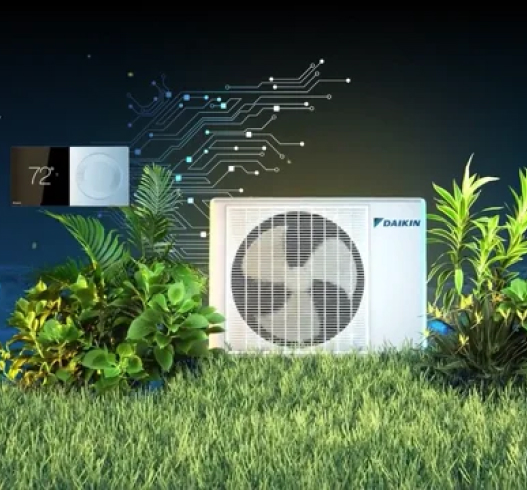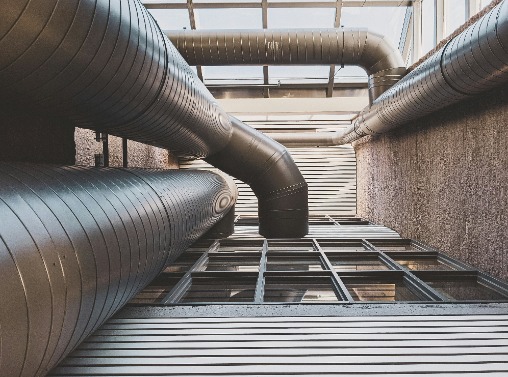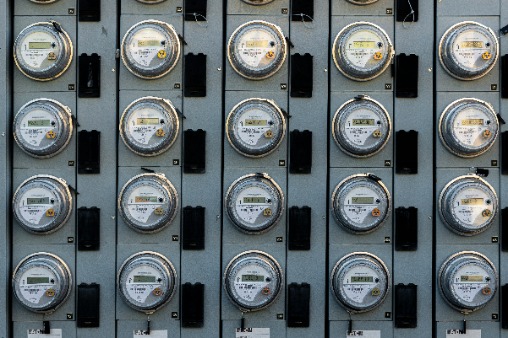Home Energy Audit: What Is It and Why You May Need One?

Here’s what a homeowner can expect from a typical HVAC-focused home energy audit.
1. Initial Consultation and Energy Bill Review
The audit begins with a review of your home’s energy usage history. The auditor will look at your energy bills and high HVAC-related energy expenses during specific times of the year. This may indicate problems with your equipment’s efficiency. This step helps the auditor identify energy use patterns and narrow down areas that need closer inspection.1
2. HVAC Equipment Inspection
A thorough inspection of the HVAC equipment involves evaluating several key components:
- Furnace or Heat Pump: The auditor should assess the age, size, and condition of the furnace or heat pump, checking for signs of wear and tear. Older units or units that are improperly sized for the home can operate inefficiently.2
- Air Conditioner: For cooling systems, the technician should examine the compressor, refrigerant levels, and evaporator coils to ensure optimal operation. Low refrigerant or dirty coils can significantly reduce cooling efficiency.3
- Thermostat: The thermostat is checked to ensure it is functioning properly and calibrated correctly. An outdated or malfunctioning thermostat may lead to inaccurate temperature control. The auditor may recommend upgrading to a programmable or smart thermostat for control and efficiency.4
3. Ductwork Evaluation
Leaky or poorly insulated ductwork is a major source of energy waste in many homes. According to the University of Florida, “Leaky ducts make your HVAC work much harder—ducts leaking just 20% of the conditioned air passing through them cause your system to work 50% harder.” 5
The auditor will inspect the ductwork for:
- Leaks: Gaps, holes, or poorly sealed connections in the ducts can result in significant energy loss, as heated or cooled air escapes before reaching the living spaces.
- Insulation: Ducts running through unconditioned spaces (e.g., attics or basements) need to be properly insulated. Poor insulation causes energy losses as air heats up or cools down while traveling through the ducts.6
- Airflow: Restricted airflow due to blockages, debris, or poorly designed duct layouts can cause your HVAC system to work harder, using more energy. The auditor will measure airflow at various points to ensure efficient distribution.
4. Blower Door Test
A blower door test is often used to assess the overall airtightness of the home. The auditor installs a blower door fan to depressurize the house, allowing them to detect air leaks around windows, doors, and other openings. This test is crucial because air leaks can force your HVAC system to work overtime to maintain comfortable indoor temperatures.7
5. Insulation and Air Sealing Assessment 8
The condition of your home’s insulation plays a big role in HVAC performance. The auditor should evaluate:
- Attic Insulation: Insufficient insulation in the attic allows conditioned air to escape, making your HVAC system run longer to maintain the desired temperature.
- Wall and Floor Insulation: Proper insulation throughout the home helps maintain consistent indoor temperatures, reducing the load on your HVAC system.
- Air Sealing: The auditor will look for gaps around doors, windows, and other openings where conditioned air could be escaping, causing the system to work harder.
6. Combustion Appliance Testing 9
If your HVAC system uses natural gas, oil, or propane, the auditor will test combustion appliances such as the furnace or water heater for safety and efficiency. This includes checking for proper venting, carbon monoxide emissions, and ensuring that the combustion process is efficient and safe for the occupants of the home.
7. Equipment Efficiency Testing
The efficiency of your HVAC equipment is evaluated through its performance ratings:
- SEER (Seasonal Energy Efficiency Ratio): For cooling systems, the SEER rating indicates how efficiently the air conditioner operates over a typical cooling season. Higher SEER ratings mean better energy efficiency.
- AFUE (Annual Fuel Utilization Efficiency): For heating equipment, the AFUE rating measures how efficiently the furnace converts fuel into heat. Higher AFUE ratings suggest greater efficiency.
The auditor should check your equipment's current efficiency ratings and compare them to industry standards. If your system has low SEER or AFUE ratings, upgrading to a high-efficiency model may result in substantial long-term energy savings.8. Ventilation and Indoor Air Quality Assessment
Proper ventilation is key to maintaining quality indoor air and an energy-efficient home.10 During the audit, the technician should evaluate your home’s ventilation to ensure it works efficiently and aids indoor air quality. This includes checking for:
- Obstructions may impede airflow.
- Excess humidity may make your HVAC system work harder to cool your home. The auditor may recommend solutions like dehumidifiers or proper ventilation improvements.
9. Energy Efficiency Recommendations11After the audit, the auditor should provide a detailed report highlighting key areas where your HVAC system is underperforming. The report will include specific recommendations for improvements, such as:
- Sealing duct leaks
- Insulating ductwork in unconditioned areas
- Upgrading to a high-efficiency HVAC unit
- Installing a smart or programmable thermostat
- Improving insulation in the attic or walls
- Sealing air leaks around windows and doors
10. Post-Audit Follow-Up
HVAC audits may include a follow-up consultation to check the progress of any recommended improvements. This helps to confirm that your energy-saving upgrades delivered the expected results.
An HVAC-specific home energy audit is invaluable for identifying inefficiencies in your home and heating and cooling system. By pinpointing problems with ductwork, insulation, air leaks, or the system itself, a professional audit can help you make informed decisions about upgrading or improving your HVAC system. These improvements may help reduce energy costs and create a more comfortable and sustainable home.
To learn more, check out the “Home Energy Audit” episode on the Sustainability Series, sponsored by Daikin.
- Department of Energy. "Consumer Guide to Home Energy Assessments." energy.gov
- EnergyStar. “A Guide to Energy-Efficient Heating and Cooling.” https://www.energystar.gov/sites/default/files/tools/HeatingCoolingGuide%20FINAL_9-4-09.pdf
- Department of Energy. “Maintaining your Air Conditioner.” https://www.energy.gov/energysaver/maintaining-your-air-conditioner
- Department of Energy. “Why Energy Efficiency Matters.” https://www.energy.gov/energysaver/why-energy-efficiency-matters
- IFAS Extension, University of Florida. “Energy Efficient Homes: The Duct System.” https://edis.ifas.ufl.edu/publication/FY1024
- Department of Energy. “Minimizing Energy Losses in Ducts.” https://www.energy.gov/energysaver/minimizing-energy-losses-ducts
- Department of Energy. "Consumer Guide to Home Energy Assessments." energy.gov
- Department of Energy. “Minimizing Energy Losses in Ducts.” https://www.energy.gov/energysaver/minimizing-energy-losses-ducts
- Department of Energy. Office of Energy Efficiency and Renewable Energy. “Combustion Appliance Zone (CAZ Testing).” https://basc.pnnl.gov/resource-guides/combustion-appliance-zone-caz-testing#edit-group-description
- National Center for Healthy Housing. “Ventilation and Indoor Air Quality.” https://nchh.org/information-and-evidence/learn-about-healthy-housing/health-hazards-prevention-and-solutions/ventilation-and-indoor-air-quality/
- Department of Energy. “Tips on Saving Money and Energy in Your Home.” https://www.energy.gov/sites/default/files/2022-08/energy-saver-guide-2022.pdf
In this article
Connect on Social Media
 Follow on Facebook
Follow on Facebook
 Follow on YouTube
Follow on YouTube
 Follow on Instagram
Follow on Instagram
 Follow on X
Follow on X
 Follow on TikTok
Follow on TikTok
 Follow on Pinterest
Follow on Pinterest

Looking for help now?
Enter your zip code to search for Daikin Contractors in your area.
Learn More
Learning Center Content
Stay informed about home comfort technology, when to upgrade, energy efficiency, and reducing your energy bills.





























